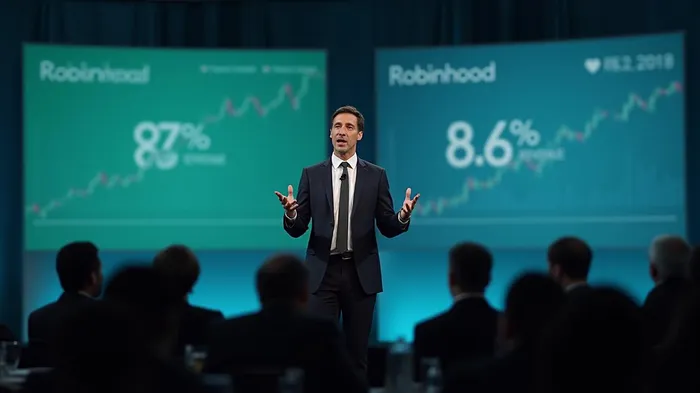Robinhood Beats Q1 Expectations Despite 8.6% Revenue Drop
Robinhood, a prominent American financialAFG-- services company, has exceeded Wall Street’s expectations for the first quarter of 2025. Despite a total revenue decline of 8.6% from the previous quarter to $927 million, the company managed to outperform analyst projections by 3.16%. This drop was primarily due to decreased crypto trading activity and overall market uncertainty.
Robinhood’s crypto revenue fell sharply by 30% quarter-over-quarter to $252 million. This decline was accompanied by a 35% drop in crypto trading volume, resulting from fewer trades taking place and a 27% fall in average notional volume per trade. The broader crypto market also took a hit, losing approximately 18% in market capitalization, partly due to the Trump administration’s tariff policies that disrupted global investor sentiment. Despite the quarterly dip, the year-on-year performance paints a brighter picture. Compared to the same period in 2024, Robinhood’s crypto-related revenue more than doubled, and trading volume increased by 28%. This sustained growth signals that long-term crypto adoption among retail investors remains intact.
To rebuild investor confidence, Robinhood expanded its share buyback program by $500 million, raising the total authorization to $1.5 billion. The corporation has already repurchased $667 million worth of stock. Following the release of the Q1 earnings data, Robinhood’s share price increased by 1.51% to $49.85 in after-hours trading, indicating that investors were feeling optimistic.
A key development supporting Robinhood’s crypto ambitions is its pending $200 million acquisition of Bitstamp, a global digital asset exchange. Expected to receive regulatory approval by mid-2025, the deal will allow Robinhood to expand its reach to institutional investors in the U.S. The strategic acquisition was built upon Robinhood’s long-term plan to become a major player in the digital asset ecosystem.
Additionally, Robinhood’s regulatory environment improved massively this quarter. On February 21, the U.S. Securities and Exchange Commission officially closed its investigation into Robinhood’s crypto operations. This regulatory clarity not only fuels confidence but also makes the way for more aggressive expansion in the crypto sector.
CEO Vladimir Tenev assured that Robinhood is committed to advancing crypto tokenization. It is a concept that involves turning assets like private equity into blockchain-based tokens. Tenev believes tokenizations could solve liquidity issues in the secondary market and unlock economic value for both investors and companies. He highlighted its potential to allow users to purchase tokenized shares in firms like OpenAI or SpaceX within minutes, positioning tokenization as a primary focus for Robinhood crypto policy efforts in Washington, DC.
While cryptocurrency has been a strong growth engine, it wasn’t the only contributor to the great performance of Robinhood. The Robinhood Gold program offers features like IRA matches, higher cash interest, and premium research tools, attracting 1.5 million new subscribers in Q1, bringing its total to 3.2 million. Additionally, revenue from options trading increased 55% and equity transactions increased 44% year-over-year, helping to balance the temporary crypto downturn.

Entiende rápidamente la historia y el origen de varias monedas bien conocidas
Latest Articles
Stay ahead of the market.
Get curated U.S. market news, insights and key dates delivered to your inbox.



Comments
No comments yet